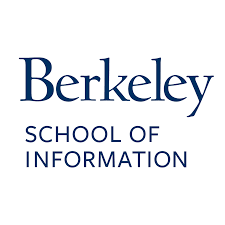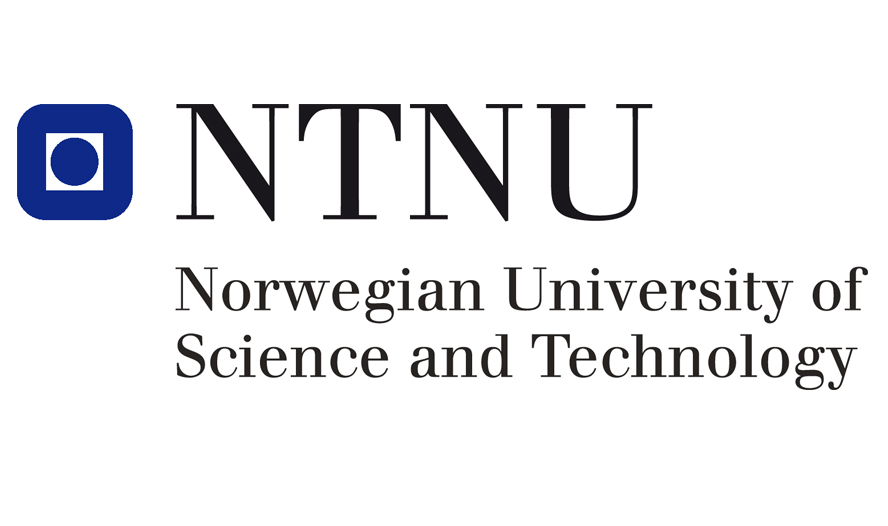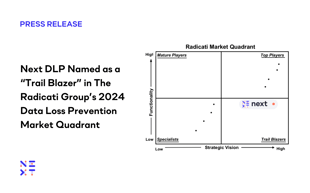Fortinet Acquires Next DLP Strengthens its Top-Tier Unified SASE Solution
Read the release

Greetings to our esteemed community of cybersecurity professionals! In this blog post, we're shining a spotlight on some of the most prestigious cybersecurity programs in the United States and Europe. This carefully curated selection is more than just a list; it's a celebration of the institutions that have played a pivotal role in shaping the landscape of cybersecurity education and research.
Our journey begins in the United States, where we highlight the exceptional programs at Carnegie Mellon University's Information Networking Institute (INI), MIT's Computer Science and Artificial Intelligence Laboratory (CSAIL), University of California, Berkeley, Georgia Institute of Technology's Institute for Information Security & Privacy (IISP), and Stanford University's Cyber Policy Center and Computer Science Department. Each of these universities has contributed significantly to the advancement of cybersecurity knowledge and practice, nurturing generations of experts who continue to lead and innovate in the field.
We then traverse the Atlantic to acknowledge the excellence of European institutions in cybersecurity education. Our list includes the prestigious University of Cambridge, University of Oxford's Cyber Security Centre, Technische Universität Darmstadt, Norwegian University of Science and Technology, and Tallinn University of Technology. These institutions represent a rich heritage of academic rigor and forward-thinking research in the realm of cybersecurity.
As alumni of these distinguished programs, you embody the expertise, innovation, and commitment that these institutions instill. We hope that reflecting on your alma mater fills you with a sense of accomplishment and encourages you to share your journey and experiences with others. Your story is not just about personal achievement; it’s a chapter in the ongoing narrative of global cybersecurity advancement. Let's celebrate this shared legacy and continue to inspire the next generation of cybersecurity experts!
The Information Networking Institute (INI) educates and develops engineers through technical, interdisciplinary master's degree programs in information networking, security and mobile and IoT engineering that incorporate business and policy perspectives. Students can earn master's degrees in Information Networking, Information Security, AI Engineering Information Security, Mobile and IoT Engineering or Information Technology-Information Security.
As an integral part of Carnegie Mellon University's College of Engineering, a Top Ten engineering school as ranked by U.S. News and World Report, the INI draws upon the strengths of colleges across campus to craft a distinctly interdisciplinary learning experience. Students can pursue coursework with the College of Engineering, School of Computer Science, Tepper School of Business and Heinz College. The advanced, specialized curriculum combines computer science, electrical and computer engineering, software engineering and information systems, with business and policy perspectives. This unique combination of a rigorous technical curriculum with practical industry-oriented topics and real-world project experience uniquely positions graduates for next-generation careers at the pulse of the tech industry.
The INI was founded in 1989 as the nation's first research and education center devoted to information networking. Wi-Fi was born at the INI. In 1989, the INI's first director, Alex Hills, created the first Wi-Fi campus network, Wireless Andrew, and brought higher education into the 21st century.

|
The Computer Science and Artificial Intelligence Laboratory (CSAIL) at MIT is a leading force in computing, dedicated to advancing how people work, play, and learn through technology. CSAIL, emerging from the merger of the Laboratory for Computer Science and the AI Lab in 2003, continues a legacy dating back to 1963. The lab has pioneered in areas such as time-sharing systems, image-guided surgery, and foundational technologies for the Internet and the World Wide Web.
CSAIL's education programs are as diverse and groundbreaking as its research. Undergraduate offerings include degrees in Electrical Science and Engineering, Computer Science and Engineering, Artificial Intelligence, and several interdisciplinary tracks. For graduate students, CSAIL offers a Master of Science, a unique Master of Engineering for MIT undergraduates, and advanced doctoral degrees in Electrical Engineering/Computer Science.
Significantly, CSAIL's work and its members have garnered numerous prestigious awards. These include multiple Turing Awards, often referred to as the "Nobel Prize of Computing," recognizing contributions like the development of the World Wide Web and RSA encryption. The lab also boasts several MacArthur Fellows, known as "Genius Grant" recipients, and winners of the Rolf Nevanlinna Prize for outstanding contributions in mathematical aspects of information sciences.
CSAIL stands out for its commitment to transforming computing. The lab not only advances technology but also shapes the future of human-computer interaction, playing a crucial role in integrating computing into everyday life. Its history of innovation and the accomplishments of its faculty and alumni underline CSAIL's enduring impact on the field of computing and AI.

|
UC Berkeley’s Master of Information and Cybersecurity (MICS) program stands as a preeminent destination for aspiring leaders in the cybersecurity domain. This online, part-time professional degree program equips students with the necessary technical skills and comprehensive knowledge to excel in high-level positions within both the private sector and government organizations. Ranked #1 among online cybersecurity master’s degree programs, MICS represents the pinnacle of cybersecurity education.
The program's interdisciplinary nature ensures mastery of core technical competencies while imbuing students with an understanding of the broader business, political, and legal aspects of cybersecurity. This approach empowers graduates to navigate and manage cyber risks effectively, fostering strategic decision-making abilities. The MICS curriculum is thoughtfully designed, encompassing vital areas such as cryptography, secure programming, systems security, and the ethical, legal, and economic framework of cybersecurity. The curriculum is further enriched with a selection of electives covering topics like privacy engineering and usable security.
A distinctive feature of the MICS program is its project-based learning approach, promoting the practical application of diverse tools and methods to tackle complex real-world problems. This hands-on experience is complemented by weekly live online sessions and asynchronous learning resources, allowing students to engage dynamically with both instructors and peers.
In addition to MICS, the UC Berkeley School of Information, established in 1994 and tracing its roots back to the 1920s, offers other distinguished programs. These include the Master's in Information and Data Science (MIDS), the Master's in Information Management and Systems (MIMS), and a PhD program in Information Science. The School's commitment to providing access to information and educating professionals in this field aligns with its rich heritage, evolving from the School of Librarianship to the forefront of information studies.
This blend of historical depth and cutting-edge educational practices positions UC Berkeley's MICS program as a leader in shaping the future of cybersecurity professionals.

|
At the Georgia Institute of Technology, the Institute for Information Security & Privacy (IISP) epitomizes the forefront of cybersecurity and privacy education, research, and innovation. Since its inception in 1885, Georgia Tech has been a pioneer in technology development, and IISP maintains this tradition by addressing the critical need for skilled professionals in the face of escalating cyber threats.
The School of Cybersecurity and Privacy (SCP) serves as a hub for both online and traditional master’s students, focusing on Cyber Physical Systems, Information Security, and Policy. Additionally, SCP fosters a collaborative environment where Ph.D. students from various disciplines engage with faculty in groundbreaking research.
The Master of Science in Cybersecurity program is a testament to Georgia Tech's interdisciplinary approach, integrating expertise from the SCP, the School of Electrical and Computer Engineering, and the School of Public Policy. This program equips students with the skills to counter evolving cybersecurity threats, offering specializations in Cyber Physical Systems, Information Security, or Policy.
Georgia Tech's standing in the academic world is significant, with its Computer Science program ranking #5 in U.S. News & World Report's Undergraduate Program Rankings and #6 in Graduate School Rankings. Additionally, it holds high rankings in Statistics and Operational Research and urban planning programs nationally.
With over 45,000 students representing 50 states and 149 countries, the Institute's influence extends globally, operating campuses in Atlanta, Europe, and China, as well as through online learning. As a major public research university, Georgia Tech's nearly $1.3 billion annual research funding across its six Colleges and the Georgia Tech Research Institute underscores its role as a powerhouse in technological innovation and economic development. This vibrant academic and research environment makes the IISP at Georgia Tech a leading destination for aspiring cybersecurity professionals.

|
Stanford University’s Cyber Policy Center, a collaborative effort of the Freeman Spogli Institute for International Studies and Stanford Law School, stands at the vanguard of cyber policy and technology interface. This center is a crucial nexus connecting academia, legal and tech industries, civil society, and policymakers nationwide, addressing pressing cyber policy issues.
The Center houses six specialized programs, each focusing on the intersection of technology, governance, law, and public policy. Among these, the Global Digital Policy Incubator aims to inspire policy innovations that uphold democratic values, human rights, and the rule of law in the digital realm. It serves as a hub for multi-stakeholder collaboration, developing policies that balance the benefits of technology with its risks, particularly concerning economic development and human rights.
The Stanford Internet Observatory is another key program, dedicated to studying the impact of internet technologies on society. It focuses on the abuse of information technologies, particularly on social media, and aims to develop a novel curriculum on trust and safety in computer science. The Observatory provides researchers with advanced data analytics and machine learning resources, enabling in-depth studies on the internet's influence.
The Program on Democracy and the Internet is crucial in understanding digital technologies' effects on democracy. It focuses on maximizing the benefits of these technologies while minimizing threats through policy, technological changes, and social and ethical norms. This program brings together scholars from diverse disciplines, informing decision-makers, including technologists, business leaders, and policymakers.
Additionally, the Program on Geopolitics, Technology, and Governance explores the political, legal, and economic implications of digital innovation. Located in Silicon Valley, this program is a hub for scholarly and policy-oriented debate on digital innovation's global impacts.
The Program on Platform Regulation focuses on current or emerging law governing Internet platforms, with an emphasis on laws’ consequences for the rights and interests of Internet users and the public.
Finally, the Stanford Social Media Lab works to understand psychological and interpersonal processes in social media using computational linguistics and behavioral experiments to understand how the words we use can reveal psychological and social dynamics, such as deception and trust, emotional dynamics, and relationships.
Stanford's Cyber Policy Center and Computer Science Department offer professional and graduate-level cybersecurity programs, providing comprehensive education in cybersecurity. These programs, backed by Stanford’s robust research capabilities and interdisciplinary approach, equip students to navigate and address the complex challenges in the cyber domain effectively.

|
The University of Cambridge, a globally recognized research university, stands at the forefront of academic excellence and innovation. With a rich heritage dating back to 1209, Cambridge has made significant contributions across various fields, including computer science. The university boasts an impressive research output with 272,896 scientific papers and 11,097,137 citations, reflecting its pivotal role in advancing knowledge and technology. Ranked 2nd in the United Kingdom and 13th globally in 2023, Cambridge demonstrates its academic prowess across 56 research topics.
The Computer Science Department at Cambridge offers a comprehensive and rigorous curriculum. The undergraduate Computer Science Tripos, a three or four-year course, culminates in a BA honours degree and, for those excelling in the third year, an additional Master of Engineering (MEng) degree. The department is proactive in engaging prospective students, offering in-person Open Days, virtual tours, online admissions sessions, and sample lectures to provide insights into the program.
For postgraduate education, Cambridge presents the one-year MPhil in Advanced Computer Science. This general Master's degree is designed as a stepping stone for PhD study, offering a blend of theoretical and practical knowledge. The department's PhD program epitomizes research excellence, focusing on individual research under expert guidance. This three-year program encourages students to delve deep into their chosen topics, with the expectation of completing substantial research by the end of the third year.
The University of Cambridge's Computer Science Department, backed by its illustrious history and academic achievements, including the impact of its 1,587 notable alumni, provides a dynamic and stimulating environment. Students are not only immersed in cutting-edge research but also become part of a legacy that shapes the future of computer science and technology.

|
The University of Oxford, with its venerable history as the oldest university in the English-speaking world and a leading collegiate research institution, offers a comprehensive and cutting-edge approach to cyber security education and research. As of October 2022, this esteemed university, home to 73 Nobel laureates and 6 Turing Award winners, integrates a deep understanding of cyber security across various academic disciplines.
Central to Oxford's cyber security endeavor is the Centre for Doctoral Training in Cyber Security. This four-year DPhil (PhD) program begins with a year dedicated to providing a well-rounded interdisciplinary education in cyber security, followed by three years of focused research leading to a doctoral thesis. Complementing this is the Centre for Doctoral Training in Autonomous Intelligent Machines and Systems, emphasizing an engineering perspective and run jointly by the Departments of Engineering Science and Computer Science.
For those seeking master's level education, Oxford offers a variety of options. The Department of Computer Science provides a part-time MSc in Software and Systems Security, accredited by GCHQ and the BCS, featuring one-week intensive courses on a wide array of security topics. Additionally, there are full-time MSc courses in Computer Science and Mathematics and Foundations of Computer Science, with the option to focus on security-related thesis topics.
The Oxford Internet Institute presents an MSc in the Social Science of the Internet, covering crucial aspects of cyber security like privacy and regulation. For a business-oriented approach, the Saïd Business School offers MBA programs with modules on managing cyber security risk. The Oxford CIO Academy, part of the school's Executive Education Open Programmes, also provides sessions on cyber security risk for IT leaders.
Moreover, the Department of Politics and International Relations and the Blavatnik School of Government offer programs where students can engage with cyber security topics, reflecting the field's interdisciplinary nature.
Oxford's Global Cyber Security Capacity Centre (GCSCC) is a testament to its role as a global leader in cyber security research, focusing on effective and efficient cyber security capacity building worldwide. This multifaceted approach, combining rigorous academics and practical application, positions Oxford as a pinnacle of cyber security education and research, fostering the next generation of cyber security experts.

|
Technische Universität Darmstadt, renowned as one of Germany's leading technical universities, offers a pioneering Master of Science in IT Security. Established in 1877 and known for its significant contributions to the IT industry, TU Darmstadt embodies excellence and relevance in research. The university's engagement with global transformations, such as the energy transition, Industry 4.0, and artificial intelligence, demonstrates its commitment to shaping the future through innovative education and research.
TU Darmstadt specializes in three core research areas: Energy and Environment, Information and Intelligence, Matter and Materials. This focus is underpinned by a problem-based interdisciplinary approach that integrates engineering sciences, natural sciences, humanities, and social sciences. This comprehensive perspective, combined with productive collaborations with society, business, and politics, propels sustainable development globally.
As a European technical university, TU Darmstadt plays a pivotal role in the Unite! network, collaborating with universities from seven European countries to develop a trans-European campus. The university's location in the Frankfurt-Rhine-Main metropolitan region, and its partnership with the Rhine-Main universities alliance, further solidifies its status as a key player in a globally attractive science hub.
The Master's program in IT Security, the first of its kind at TU Darmstadt, is a testament to the university's leadership in cybersecurity education. The curriculum focuses on System Security, Cryptography, and Software Security, providing students with a robust foundation in computer science principles, including database systems and programming. This program equips students with the advanced skills and knowledge needed to excel in the rapidly evolving field of IT security.
TU Darmstadt's legacy in IT, marked by its role in founding the 'Silicon Valley of Germany' and its pioneering efforts in electrical engineering education, positions its IT Security Master's program at the forefront of cybersecurity education. The university's long-standing tradition of innovation and excellence ensures that graduates are well-equipped to meet the challenges and opportunities in the dynamic world of IT security.

|
The Norwegian University of Science and Technology (NTNU), the largest university in Norway, stands as a beacon of excellence in cybersecurity education. With a vibrant community of over 40,000 students and 8,000 academic staff, NTNU is recognized as one of Europe's premier institutions for cybersecurity studies, currently ranking 281st globally according to U.S. News.
NTNU offers a comprehensive range of programs in cybersecurity, from undergraduate to Ph.D. levels, designed to equip students with the skills necessary to address modern cyber threats. These programs emphasize the importance of managing data securely and investigating organizational cyber attacks. The curriculum is tailored to provide a deep understanding of the digital infrastructure and the complexities of cyber security in today’s interconnected world.
The university's offerings include a three-year Bachelor's program in Digital Infrastructure and Cyber Security, and a two-year Master's program with specializations in Information Security, Digital Infrastructure and Cyber Security, Experienced-based Information Security, and Security and Cloud Computing. For those aspiring to higher levels of academic achievement, NTNU also offers a five-year Master's program in Communication Technology and Digital Security, as well as Ph.D. studies in Information Security and Communication Technology.
Founded on January 1, 1996, NTNU is not just focused on academic excellence but also on global engagement. It has forged over 300 cooperative and exchange agreements with 60 universities worldwide and is actively involved in several international student exchange programs. Each year, the university awards approximately 3,500 bachelor's and master's degrees and engages over 5,500 students in further education programs.
NTNU’s holistic approach to cybersecurity education, combining theoretical knowledge with practical applications and global perspectives, makes it an ideal destination for students seeking to become experts in the field of cyber security.

|
Tallinn University of Technology (TalTech), founded in 1918, has evolved into one of Estonia's most prominent technological universities, renowned for its advanced cybersecurity education. With over 12,000 students and a top 10 ranking according to QS Rankings, TalTech is celebrated for its exceptional educational standards and international acclaim.
Specializing in cybersecurity, TalTech offers comprehensive programs at both bachelor’s and master’s levels. These programs are designed to deepen students' understanding and expertise in critical areas of cybersecurity, including logic, IT infrastructure, and programming languages. The university's approach to cybersecurity education encompasses a broad spectrum of information system security aspects, along with specialized knowledge in various sub-fields.
Students at TalTech benefit from an exceptional opportunity to learn from high-level cybersecurity practitioners. This includes experts from Estonian universities, the industry, law enforcement, CERT, and the NATO Cooperative Cyber Defence Centre of Excellence. Such exposure ensures that students not only gain theoretical knowledge but also practical insights from leaders in the field.
Degrees offered include a Bachelor of Science in Engineering and a Master of Science in Engineering (MSc) in cybersecurity. These programs are structured to equip students with essential skills for addressing contemporary cyber threats and challenges.
TalTech stands out as the most international university in Estonia, boasting the highest proportion of foreign students (16%) and lecturers (17%) among Estonian universities. This diverse environment enriches the learning experience, providing students with a global perspective on cybersecurity issues.
TalTech’s commitment to excellence in cybersecurity education, combined with its international outlook and strong industry connections, positions its graduates for successful careers in the rapidly evolving field of cybersecurity.
So there you have it, our shortlist of top cybersecurity programs in the US and Europe. Did you see your program on the list? Did we leave anything out? Let us know by tagging us on LinkedIn. Hopefully, we'll capture the attention of the next generation of cybersecurity experts and drive them in the right direction.

Blog

Blog

Blog

Blog

Resources

Resources

Resources

Resources
